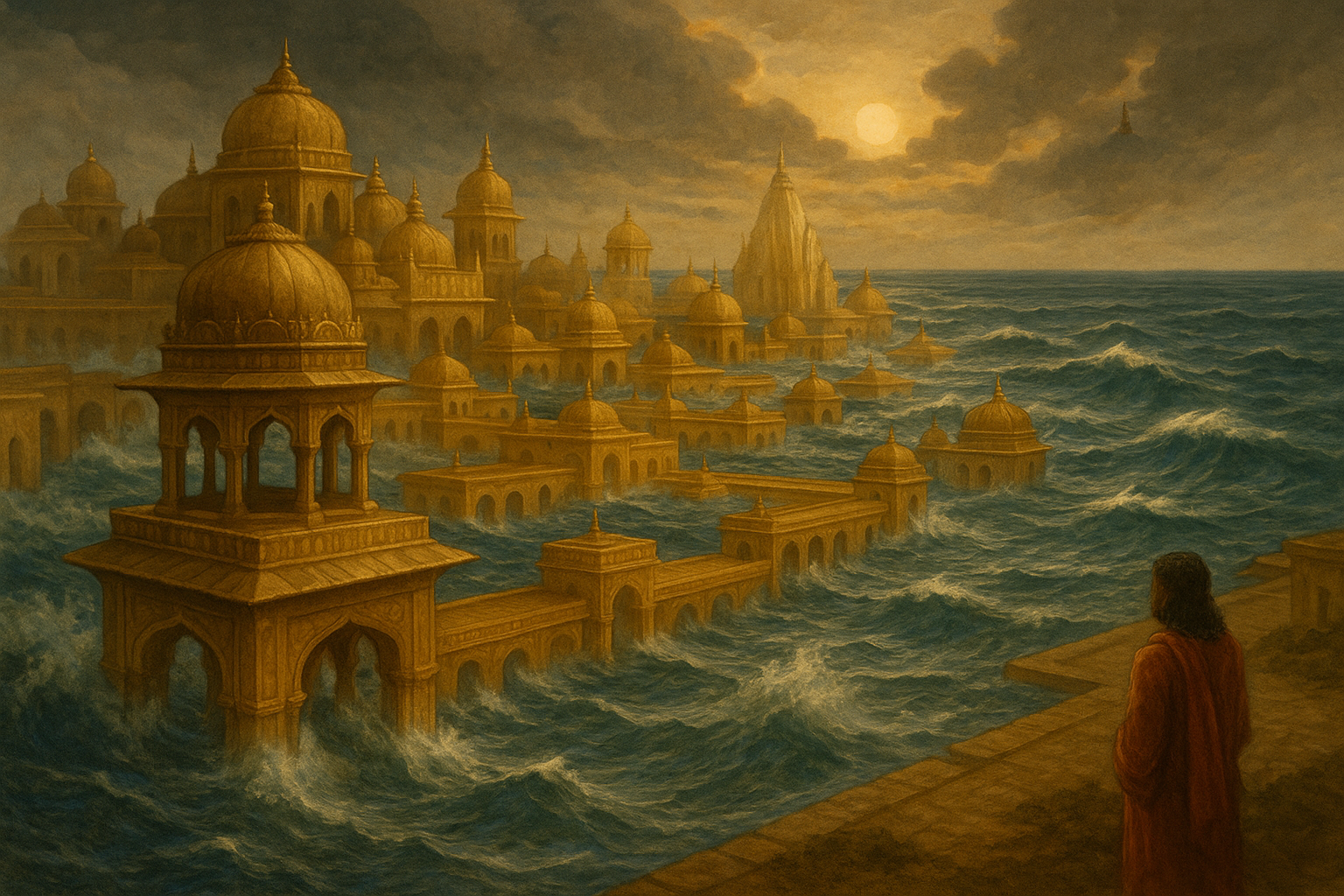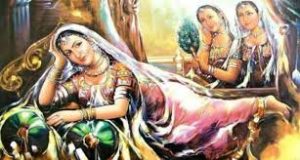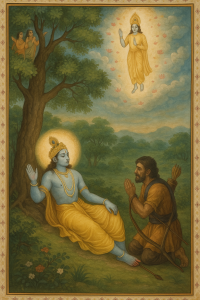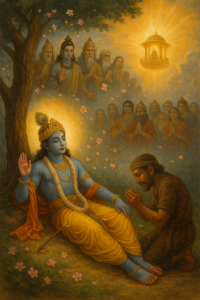The Empty City of Dvārakā
After the fratricidal war at Prabhāsakṣetra and the departure of Lord Śrī Kṛṣṇa from this world, Dvārakā, the glorious and invincible city built by Viśvakarmā at the Lord’s command, stood silent and abandoned.
The mighty Yādava warriors were no more. The queens and noble women had been escorted away by Arjuna, and the halls that once echoed with laughter, music, and the sound of conch shells were now filled only with the whispers of the wind.
A golden city, filled with celestial opulence and divine architecture, Dvārakā had been the jewel of the Earth. But its purpose was fulfilled. The city had manifested only for Kṛṣṇa’s pastimes, and now that He had withdrawn those pastimes, the city, too, was destined to return to the sea.
The Forewarning of the Sages
Before leaving Prabhāsa, Lord Kṛṣṇa had told the Yādava elders and Arjuna:
“After My departure, Dvārakā shall no longer remain upon the Earth. It shall sink into the ocean, and none shall be able to stop it. Let all depart before that time arrives.”
Taking His words to heart, the surviving members of the royal household left Dvārakā, guided by Arjuna, and relocated to Indraprastha and other sacred places.
The Ocean Reclaims the City
Not long after, as predicted, the ocean waves began to rise.
- First, they touched the outer gardens.
- Then, they covered the roads.
- The golden buildings, the white marble temples, the courtyards, and the palaces—one by one—were submerged beneath the waters of the sea.
In a majestic yet sorrowful scene, Dvārakā disappeared into the depths, just as it had once risen miraculously from them.
Even Daruka, Kṛṣṇa’s charioteer, and a few remaining citizens watched with tears as the city of the Supreme Lord returned to the cosmic waters, like a dream dissolving at dawn.
The End of an Age
The submergence of Dvārakā marked the end of Dvāpara-yuga and the formal beginning of Kali-yuga, the age of quarrel and confusion.
But though the city was lost, Kṛṣṇa’s glories were not.
The sages began to recite the Bhāgavatam, the devotees preserved His stories, and the holy name of the Lord began to spread across the earth as the only light in the growing darkness.
Lessons to Be Learned:
- The Lord’s divine abodes on Earth are not ordinary—they appear and disappear by His will alone.
- Even the greatest cities and empires are temporary, but the name and glories of the Lord are eternal.
- When the Lord departs, the world enters a time of trial—but for the faithful, it is a time to hold more tightly to devotion.
- Kṛṣṇa is never gone—He remains through His devotees, His śāstra, and His holy name.
Origin of the Story: Harivamsa Purana 3 – Chapter 141: The Submergence of Dvārakā and the Closing of the Lord’s Earthly Pastimes



